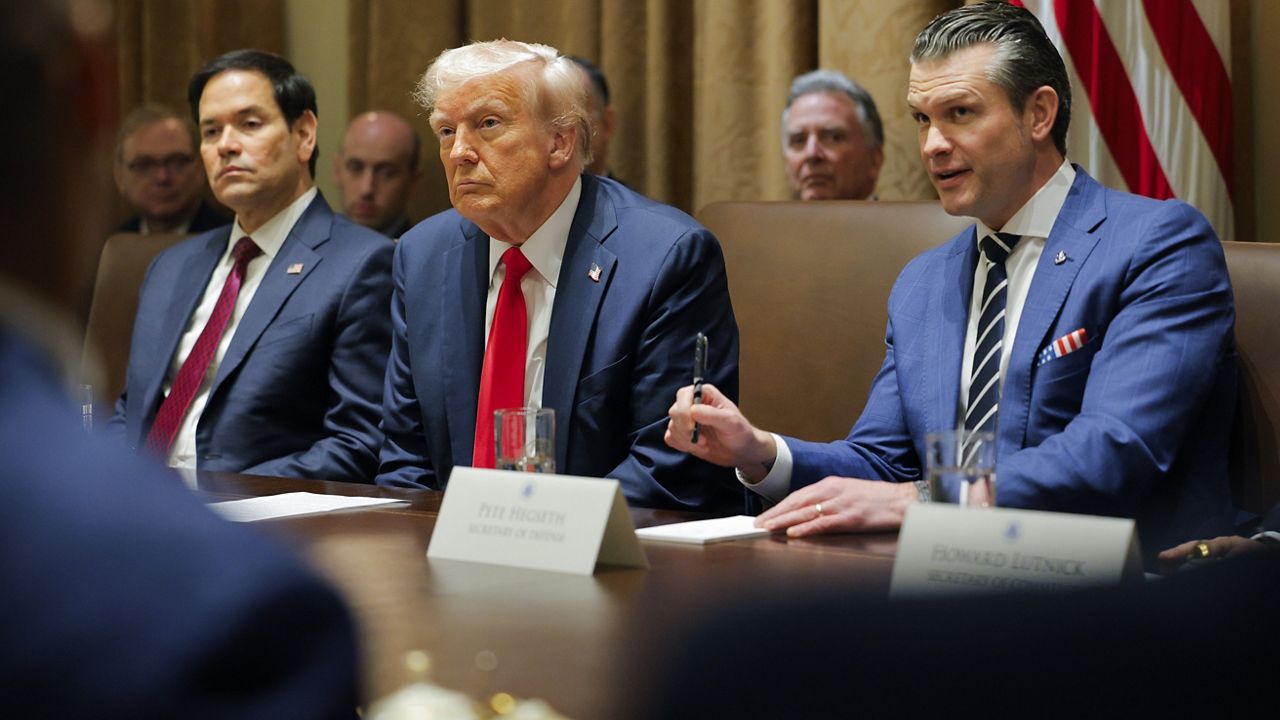Attorney General Merrick Garland testified before the House Judiciary Committee on Thursday, where he fielded a range of questions regarding oversight of the department – including abortion and voting rights, the overflow of migrants at the U.S. border, and ongoing efforts to investigate the Jan. 6 U.S. Capitol insurrection.
"In seven months, the Justice Department has accomplished a lot of important work for the American people. and there is much more to do," Garland said.
Garland’s hearing came just hours before House lawmakers voted to recommend criminal contempt charges against former Trump adviser Steve Bannon for refusing to comply with their investigation into the Jan. 6 insurrection. The recommendation will be sent to the Justice Department, where officials will now decide how – or if – to prosecute Bannon.
Asked earlier by House Judiciary Committee Chairman Jerry Nadler, D-N.Y., how he would proceed if House lawmakers voted to proceed with the criminal recommendation, Garland vowed the Justice Department will "do what it always does in such circumstances."
“We’ll apply the facts and the law and make a decision consistent with the principles of prosecution,” Garland told Nadler.
Garland, who served as a U.S. appeals court judge for more than 20 years before his confirmation as attorney general in March, characterized the Jan. 6 insurrection as an “intolerable assault, not only on the Capitol and the brave law enforcement personnel who sought to protect it, but also on a fundamental element of our democracy: the peaceful transfer of power."
"I have great confidence in the prosecutors who are undertaking these cases," Garland added. "They are doing exactly what they are expected to do: make careful determinations about the facts and the applicable law in each individual case."
"The Department is engaged in one of the most sweeping investigations in its history in connection with the Jan. 6 attack on the Capitol," Garland told lawmakers Thursday.
Democrats have demanded that the Justice Department take action and restore the power of Congressional subpoenas, which were largely ignored under the Trump administration.
“The stakes are enormous,” Rep. Jamie Raskin, D-Md., a member of the Jan. 6 panel, said ahead of Thursday's hearing. “The Congress of the United States under Article One has the power to investigate in order to inform our deliberations about how to legislate going forward. That’s what this is about.”
“The ex-President and his allies continue to cast doubt on the last election and appear to be drafting a plan to overturn the next one," House Judiciary chairman Rep. Nadler, D-N.Y., said Thursday. "And next time, we may not be so lucky."
In his opening remarks, Garland laid out three “co-equal” priorities that he said guided his oversight of the Justice Department: Upholding the rule of law, keeping the country safe, and protecting civil rights.
"The essence of the rule of law is that like cases are treated alike," Garland said. "That there not be one rule for Democrats and another for Republicans; one rule for friends, another for foes; one rule for the rich and another for the poor; or different rules depending on one’s race or ethnicity. The integrity of our legal system is premised on adherence to the rule of law."
But despite efforts from Nadler and others on the House Judiciary Committee, much of Thursday’s was consumed by political issues – with Republicans focused largely on threats of violence that have dominated local school board elections.
Many focused on the Justice Department's announcement that they will combat the “rise in criminal conduct directed toward school personnel," specifically when it comes to mask mandates and other efforts to mitigate the spread of COVID-19.
The effort came after the National School Boards Association penned a letter to President Joe Biden asking federal assistance to investigate and stop threats made over policies including mask mandates, likening the vitriol to a form of domestic terrorism.
Republicans zeroed in on the Justice Department's announcement that they will combat the “rise in criminal conduct directed toward school personnel," specifically when it comes to mask mandates and other efforts to mitigate the spread of COVID-19.
"We are trying to prevent violence and threats of violence not only in schools," Garland told lawmakers Thursday. "We have similar concerns with respect to election workers, with respect to hate crime, with respect to judges and police officers."
But in doing so, lawmakers accused the Justice Department of “overstepping” its authority.
“Not in a million years did we dream that one day we’d see the Justice Department treat American parents as domestic terrorists,” said Rep. Rep. Steve Chabot, R-Ohio.
“Jefferson said once tyranny is when the people fear the government," added Rep. Jim Jordan, R-Ohio. "We are there."
Garland said Thursday that while parents should "absolutely" participate in school board meetings and express their concerns and opinions about the education their children are receiving, threats of violence against school officials are not protected under the First Amendment of the Constitution, and the department will investigate and prosecute such threats.
"I want to be clear that the Justice Department supports and defends the First Amendment right of parents to complain as vociferously as they wish about the education of their children, about the curriculum taught in the schools," Garland said.
"We are trying to prevent violence and threats of violence not only in schools," he added. "We have similar concerns with respect to election workers, with respect to hate crime, with respect to judges and police officers."
Garland also touted the work the department has done "reinvigorating civil rights enforcement."
"We are scrutinizing new laws that seek to curb voter access, and where we see violations, we will not hesitate to act," Garland said. "We are also scrutinizing current laws and practices to determine whether they discriminate against Black voters and other voters of color."









